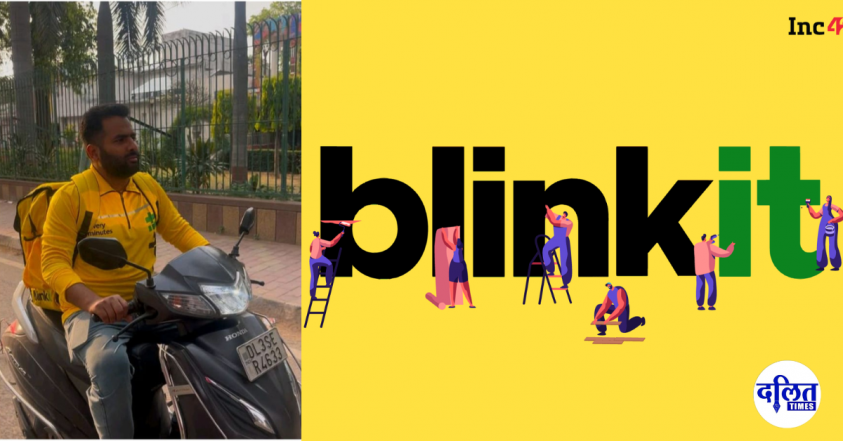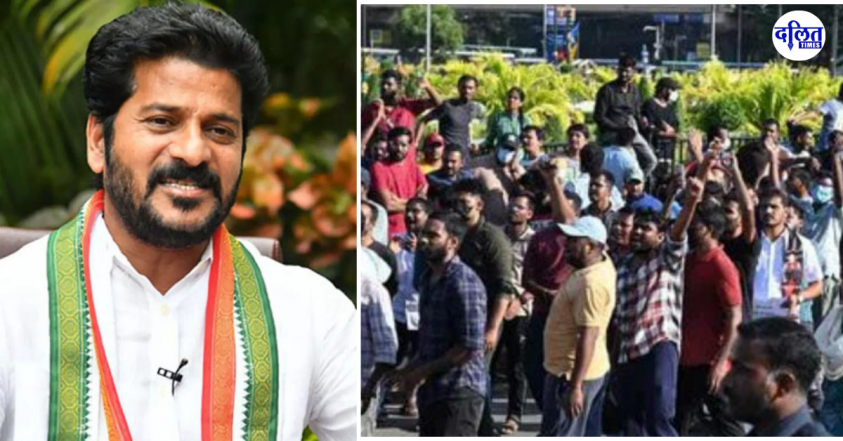Salman Salim deserves respect. All workers deserve dignity.And this country deserves to be called out—for its deep, shameful hypocrisy.
What kind of society do we want to live in?- One where convenience is delivered—but compassion is not? -One where groceries reach the doorstep—but justice never does?
Untouchability has not disappeared—it has evolved. It now wears the mask of civility, hides behind glass gates, and operates elevators of exclusion. What was once temple-entry denial has become housing society apartheid. The caste system has simply updated its interface.
Take the case of Salman Salim, a Blinkit delivery worker in Delhi. One among thousands of faceless, nameless gig workers, Salman shared his experience on LinkedIn. He had rushed through chaotic traffic, under a punishing sun, through dust and noise, to deliver a bag of groceries—on time. He reached the housing complex, only to be stopped from using the main lift.
Also Read: Not a Scene from a Horror Film: Rajasthan’s Atrocity and the State’s Silence
“You can’t use the main lift,” they told him. “Use the service lift.” And when that wasn’t allowed, the message was clear: “Take the stairs.” Even to the fourth floor.
This wasn’t about security. It wasn’t about logistics. It was about status—and about the discomfort India’s elite feel when laboring, sweating bodies enter their sterile, scented spaces.
But Salman’s story isn’t unique. It is disturbingly common.
Walk into any gated society in Bengaluru, Mumbai, Delhi, or Kochi. You’ll find manicured lawns, potted plants, and Sanskrit slogans proclaiming peace. But for delivery workers and domestic staff, the reality is segregation. Separate lifts. Separate entrances. Sometimes even separate water.
This is untouchability—Not declared by scripture, but enforced by spreadsheets.Not justified by ritual, but upheld by apartment WhatsApp groups.
The same “educated” classes—engineers, lawyers, professors, IT professionals—who post about human rights and gender equality, cannot stand the sight of a delivery worker stepping into “their” lift. They click ‘pay’ on an app and look away when the person delivering their convenience wipes sweat from his brow. They preach equality, but practice exclusion.
This is not just elitism. It is caste in another costume.
In a society as deeply casteist as ours, class is never innocent. Most gig workers—those who deliver your food, clean your homes, or drive your cabs—belong to Dalit, Muslim, or Adivasi communities. Their economic status is not a coincidence. Their social exclusion is not isolated. Their treatment is not accidental.
If caste kept people out of temples, class now keeps them out of elevators.
If Brahmanism marked bodies as pollutants, urban upper-class anxiety marks poverty as contaminating.
Let us be honest: this is not “just how it is.” It is violence. Systemic, silent, everyday violence—masked as “rules” or “policy”—that denies workers dignity, space, and humanity.
So let’s stop pretending.
This is not about safety. It’s about fear. Fear of proximity. Fear of equality. Fear of confronting one’s own privilege. Fear of seeing the worker not as a service, but as a human being.
Also Read: Torture for Demanding Wages: Dalit Minors from Rajasthan Brutally Assaulted in Chhattisgarh
To deny someone the right to use a lift is not a small act. It is a deep moral failure. To send someone up four flights of stairs after they’ve crossed a burning city is not an inconvenience—it is cruelty.
And those who enforce this cruelty are not the illiterate. They are the highly educated. The English-speaking. The elite. The hypocrites.
This is the same societies they celebrates Ambedkar Jayanti with Instagram reels—while practicing social apartheid every single day.The same societis that cries foul when caste is named—but enforces its logic in every gated tower, every “respectable” household, every boardroom.
Because a society that refuses to share a lift cannot claim to be lifting anyone.
Companies like Zepto and Blinkit must also be held accountable. It is not enough to promise speed and convenience. They must guarantee dignity and protection. Their workers are not disposable. Their safety, respect, and access to humane working conditions must be non-negotiable.
By Bindu Ammini
April 21, 2025



